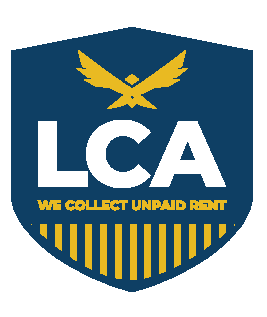Fair housing laws are designed to ensure that all individuals have an equal opportunity to find a place to live, free from discrimination. For Connecticut landlords, understanding and adhering to these laws is not just a legal requirement but a fundamental aspect of sound business practice. Violations, even if unintentional, can lead to costly lawsuits, fines, and damage to your reputation.
The federal Fair Housing Act protects seven classes: race, color, national origin, religion, sex, familial status, and disability. Connecticut law extends these protections to additional classes, including:
- Age (with the exception of minors)
- Ancestry
- Marital status
- Sexual orientation
- Gender identity or expression
- Lawful source of income (which includes Section 8 vouchers)
- Status as a victim of domestic violence
- Status as a veteran
- Civil union status
- Prior criminal record (with certain exceptions)
To avoid common fair housing mistakes, landlords should focus on consistency, documentation, and a deep understanding of their legal obligations.
Common Fair Housing Mistakes and How to Avoid Them
- Inconsistent Screening and Application of Rules One of the most frequent fair housing claims arises from inconsistency. If you ask for a criminal background check from one applicant but not another, or require references for some but not all, you are creating a legal risk.
- How to Avoid: Develop a standardized, written screening policy. Apply it uniformly to every single applicant, without exception. This includes requiring the same documents, running the same checks, and enforcing the same rental criteria for everyone.
- Discriminatory Advertising Fair housing violations can begin before a single applicant even calls. Advertising a property with phrases like “perfect for a quiet couple,” “no children,” or “ideal for a single professional” can be seen as discriminatory based on familial status or marital status.
- How to Avoid: Use neutral, descriptive language when advertising your property. Focus on the features of the unit and the neighborhood rather than a desired tenant type. For example, instead of “ideal for a single professional,” describe it as a “spacious studio with easy access to public transit.”
- Mishandling Requests for Reasonable Accommodations for Disabilities Landlords are required to make reasonable accommodations or modifications for tenants with disabilities. This is a common area of violation. An accommodation is a change in rules or policies, while a modification is a physical change to the property. A landlord cannot refuse a person with a disability because of concerns about the need for an accommodation.
- How to Avoid: Take all requests for accommodations seriously and engage in a dialogue with the tenant. Examples include:
- Allowing a “no-pets” policy exception for a service or emotional support animal.
- Granting a request for a designated parking space near the unit for a tenant with a mobility impairment.
- Allowing a tenant to install a wheelchair ramp at their own expense (in most cases).
- A landlord can only deny a request if it poses an “undue financial and administrative burden.”
- Misinformation or “Steering” This occurs when a landlord or agent attempts to influence a prospective tenant’s choice of housing based on their protected class. For example, telling a family with children that a unit is unavailable and then offering it to an applicant without children is a direct violation. Showing applicants only units in certain neighborhoods based on their race is also illegal.
- How to Avoid: Maintain accurate and up-to-date records of available units. Be transparent and honest about what is available. Do not make assumptions about what a tenant wants or where they would be “comfortable” living.
- Retaliation It is illegal to retaliate against a tenant who has exercised their fair housing rights. This includes raising the rent, refusing to renew a lease, or starting eviction proceedings after a tenant has filed a fair housing complaint, requested a reasonable accommodation, or reported a violation.
- How to Avoid: Separate any dispute with a tenant from a legitimate business reason for a decision. If a tenant files a complaint and you need to evict them for non-payment of rent, ensure you have a clear, documented history of late payments that stands independently of the fair housing claim.
Fair housing is not just about avoiding legal trouble; it is about building a business on a foundation of fairness, equality, and professionalism. In Connecticut, with its broad protections, a landlord’s best strategy is to adopt a standardized, objective approach to every part of the rental process, from advertising to tenant screening and lease enforcement. By focusing on consistent policies and treating every applicant and tenant with respect and impartiality, you can not only avoid costly mistakes but also create a positive and thriving rental business.
Ready to protect your investment and build your expertise?
Join the Connecticut Property Owners Alliance (CTPOA) today! For only $99/year, you’ll gain access to an invaluable suite of resources, including live webinars on critical topics like fair housing, evictions, and new legislation. Our members also benefit from an online resource library, discounted vendor services, and a supportive network of fellow property owners. Stay ahead of legislative changes, get answers to your most pressing questions, and make informed decisions that protect your business. Don’t navigate the complex world of property management alone—become a CTPOA member and get the expert support you need.








